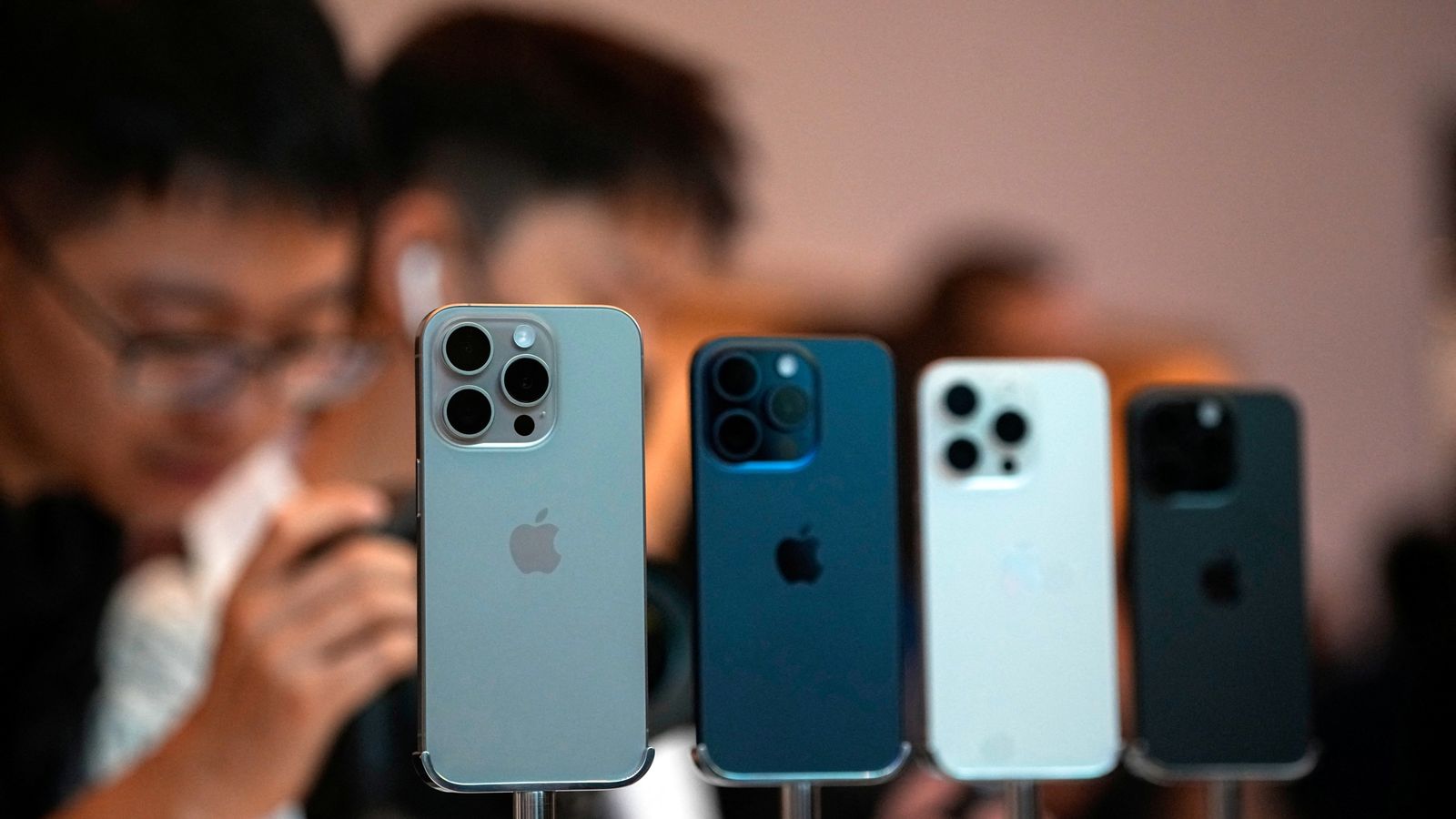The US Department of Justice is suing Apple, accusing the tech giant of maintaining an illegal monopoly on smartphones.
The 88-page lawsuit alleges the California-based company is making its products worse for consumers so it can block out competitors.
Attorney General Merrick Garland described the firm’s behaviour as “exclusionary, anti-competitive conduct that hurts both consumers and developers”.
Mr Garland said: “Monopolies like Apple’s threaten the free and fair markets upon which our economy is based.
“They stifle innovation, they hurt producers and workers, and they increase costs for consumers.
“If left unchallenged, Apple will only continue to strengthen its smartphone monopoly.”
According to the justice department, Apple’s net income exceeds the individual GDP of more than 100 countries and it attributes a large part of that to the success of the iPhone.
Apple’s share of the US smartphone market is more than 65%.
Fifteen US states and the District of Columbia have joined the justice department in the first major antitrust effort against the iPhone maker by the Biden administration.
What are the accusations based on?
The lawsuit cites five examples of Apple suppressing technologies that would have increased competition – so-called “super apps”, cloud stream game apps, messaging apps, smartwatches and digital wallets.
Speaking about the digital wallet, Mr Garland said Apple encourages banks to participate but at the same time “exerts its monopoly power” to block them from developing similar products for iPhone users.
Click to subscribe to The Ian King Business Podcast wherever you get your podcasts
Apple has blocked third-party developers from creating digital wallets on the iPhone that use “tap-to-pay”, instead forcing users to share personal information with Apple instead of just their bank, he said.
“When an iPhone user puts a credit or debit card into Apple Wallet, Apple inserts itself in a process that could otherwise occur directly between the user and card issuer,” he added.
“This introduces an additional potential point of failure for the privacy and security of Apple users.
“And that is just one way in which Apple is willing to make the iPhone less secure and less private in order to maintain its monopoly power.”
Read more:
Apple fined £1.5bn for not notifying users of cheaper music streaming options
Owned an older iPhone? You may get payout from UK lawsuit
Talking about the messaging app, Mr Garland said that, if an iPhone user messages a non-iPhone user through Apple Messages, the text is only a green bubble, it is not encrypted, videos are pixelated, and users cannot edit messages or see typing indicators.
“As a result, iPhone users perceive rival smartphones as being lower quality because the experience of messaging friends and family who do not own iPhones is worse – even though Apple is the one responsible for breaking cross-platform messaging,” Mr Garland said.
“And it does so intentionally.”
What has Apple said?
Apple said the lawsuit is “wrong on the facts and the law” and that it will vigorously defend against it.
“This lawsuit threatens who we are and the principles that set Apple products apart in fiercely competitive markets.
“If successful, it would hinder our ability to create the kind of technology people expect from Apple – where hardware software, and services intersect.”
Apple shares were down 3.5% in US morning trading.
Apple is also in the firing line in Europe where, along with Meta and Alphabet’s Google, it is expected to face the scrutiny of the European Commission.
The commission is likely to announce investigations in the coming days into whether the companies have breached Europe’s Digital Markets Act, Reuters reported.









